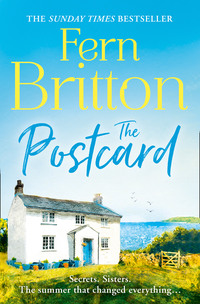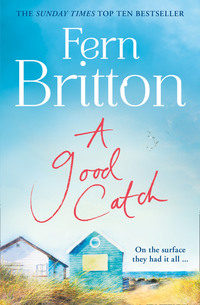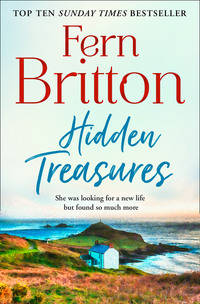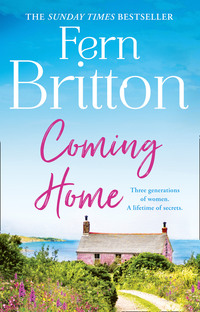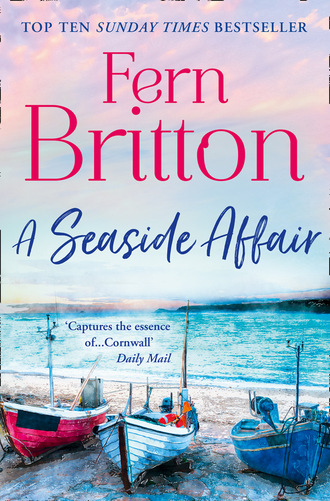
Полная версия
A Seaside Affair
‘Not wild after all, boy, eh? Tagged, same as me.’ He shook his head. ‘Oh, to be free again.’
*
The matinee went well. The audience of GCSE students were attentive and seemed to enjoy the story. At the curtain calls one young female voice called out, ‘Ollie, I love you’ as he took his bow. He smiled and gave a wave, which provoked another shout: ‘Send my love to Red!’ One of the grander old actors sighed with utter disdain and walked off before the curtain came down.
*
Back in his dressing room, Ollie was sitting with his head in his hands, wondering how he’d got into such a mess, when there was a knock at the door.
‘Ah, Ollie – may I have a word?’ Nigel the company manager licked his wispy moustache.
‘Yeah, Nige. Come in.’ Ollie leaned over and took his costume off the spare chair. ‘Sit down.’
Nigel carried on standing.
‘This is a bit awkward, but … your young fans. We appreciate you can’t, we can’t, stop them from calling out, but could you not acknowledge them?’
Ollie slumped back in his chair. ‘Who’s complained?’
‘Er, it’s not a complaint as such. More a request for some respect towards your fellow artistes.’
‘Sir Terry? Is that why he walked off before the tabs came in?’
‘I’m not going to name names, that would be too sordid. The fact is you’re a young actor sharing the stage with colleagues who deserve your respect and that of the audience.’
‘Sir Terry it is then.’
‘Possibly.’
‘The Knight’, as he was nicknamed, was a grand old gay actor; charming, knowledgeable and with a seemingly bottomless fund of outrageous stories. He’d first joined the RSC in the early fifties, working with Olivier, Gielgud and Richardson. He was theatrical royalty and if he found a company member to be upsetting, that company member would never work with him again. Sir Terry had been considered the box office draw of the season, but as the weeks went by it was becoming clear that young Ollie Pinkerton, hitherto unknown jobbing actor but now a celebrity as a result of his relationship with rock star Red, was the one pulling in the punters.
Ollie took a deep breath and stood up. ‘Nigel, I quite understand. And, as a matter of courtesy, I shall apologise to The Knight right away.’
‘Thank you, Ollie. You will make my life, and indeed your own life, much happier if you do so.’
4
Piran, gutting half a dozen fresh mackerel with a vengeance, was clearly in a bad mood.
‘I’m a historian. Anything after the Second World War is of no interest to me. The Pavilions could slide into the sea and I wouldn’t give a toss.’ He slapped a fillet into a plate of flour. ‘Unless it uncovered an Iron Age settlement or bloody King Arthur’s Camelot – which doesn’t exist, by the way – I’m not interested.’
His two cats, Bosun and Sprat, were winding themselves round his feet waiting for scraps. He chucked down a couple of fish skins.
Helen, who had rolled her shirtsleeves up and was busily covering the fish fillets in flour, patting them gently before placing them on a clean tea towel ready for the frying pan, turned to him crestfallen. ‘I hate that Camelot wasn’t real. Are you sure?’
‘Aye.’
‘But there was an Arthur, wasn’t there?’
‘There’s no evidence, no.’ Piran carried on focusing on the job in hand, his curls bouncing over his forehead as his strong weathered hands dexterously removed the last remaining bones.
‘So no Guinevere?’
Piran slapped the final fillet on the plate in front of her and pushed his hair out of his eyes with the back of his wrist. ‘No – thank God. She was supposed to have broken his heart, wasn’t she? Ran off with his best mate. Typical bloody woman!’
‘Typical chauvinist comment.’
He stuck his sharp knife, point down, into the wood of his kitchen table so that it quivered like an arrow. ‘I’m making you supper, aren’t I?’
Helen opened her eyes wide and cooed, ‘You are one hundred per cent new man! Would you pour me a glass of wine?’
He glowered at her for a moment then kissed her nose. ‘Don’t go pushing your luck, maid.’
*
The mackerel were delicious, served simply with hunks of buttered crusty bread and large tumblers of local cider. Helen got up, threw the bones in the bin and made a move to put the plates in the sink but Piran reached up and stopped her. ‘Don’t bother with those. They’ll keep till the morning.’ He found her hand and she felt the roughness of his skin on her palm. ‘You smell nice. Are you staying tonight?’
‘Would you like me to?’
‘I’m not going to beg. Your decision, Helen.’
‘Sometimes I’d like you to beg.’
‘I thought you didn’t want to feel crowded, that you liked your independence.’
‘I do …’ An image of Gull’s Cry, the dream cottage that she’d made a reality, flitted through her mind. Once the children had flown the nest, she’d realised that she couldn’t go on sharing a Chiswick townhouse with her philandering husband. So she’d asked Gray for a divorce and uprooted herself to Pendruggan. She’d settled in so well, it was hard to believe only two years had gone by since she moved in. And after years of playing housekeeper and homemaker to her family, it was a luxury to be free to do her own thing.
She was brought back to the present by Piran squeezing her hand. ‘Something tells me there’s a “but …” coming,’ he said.
‘No – well, sort of. I do like my independence, but that doesn’t mean I wouldn’t appreciate a bit of spontaneous passion now and again.’
‘Why are women so bloody contrary?’ growled Piran in mock exasperation. ‘If it’s passion you want, maid, I’ll sling you over my shoulder and carry you upstairs.’
‘Oooh, would you – right now?’
Her laughter echoed up the stairs as Piran make good on his threat.
*
Piran’s bed was a big old wooden thing, made, he said, out of the wreckage of a fishing boat that had run aground years before. It was the most comfortable bed Helen had ever known. She stretched herself out then curled herself around Piran as he slept with his back to her. Bosun and Sprat lifted their heads as they were gently bobbed about on a sea of tartan blanket, waiting for her to settle. When she was finally still, they put their heads down and curled their tails round their noses. Piran mumbled something.
Helen lifted her head slightly, the better to hear him. ‘What did you say?’
He spoke a little louder.
‘I said, What time is it, cloth ears.’
‘Seven fifteen.’
‘Want a cup of tea?’
‘Yes please.’
For a big man he moved with a fluidity that never failed to amaze her. She watched as he bent down and picked up his discarded T-shirt from the night before, then sat on the edge of the bed to pull it over his head. As all men do, he looked faintly ridiculous and even vulnerable as he stood up displaying his naked lower half. He checked his testicles unconsciously, before shuffling his feet into an ancient pair of leather slippers and reaching for an equally ancient dressing gown that had been draped over a chair.
Bosun and Sprat’s ears pricked up, their eyes watchful in case this was a false alarm or whether it was looking good for breakfast. At the words ‘Come on, boys’ they both sprang off the bed and followed their owner downstairs.
Helen sank back into the tangle of soft cotton sheets and blankets (Piran was never going to be a duvet man) and closed her eyes. She could hear him talking to the cats and the scrape of their food bowls as he placed them on the tiled floor of the kitchen. She could hear the whoosh of the water from the tap as he filled the kettle, and then the radio came on, tuned to the local news. With a sigh she snuggled into the pillow and was almost drifting back into sleep when she heard a loud ‘Oh, for chrissake!’ and the sound of Piran’s footsteps marching towards the bottom of the stairs.
‘Helen, come down here. They’re on the bloody radio.’
‘Who?’ she called back, but he had returned to the kitchen and was out of earshot.
Hurriedly pulling on one of Piran’s old shirts, she made her way to the kitchen. He was standing at the counter, staring at the battered radio and listening intently.
‘What …?’ she asked.
‘Shhh.’
She shut up and listened.
It seemed to be a phone-in. Pam, the show’s presenter, was talking to a female caller:
Caller: The point is, Pam, this is an important and much-loved part of our heritage. The community still uses the Pavilions building and it mustn’t be allowed to fall into the hands of some global coffee chain.
Pam: This wouldn’t have anything to do with the fact that you run three of Trevay’s cafés and you don’t want the competition?
Caller: It’s not about money. It’s about what the Pavilions means to us as a community.
Pam: And when did you last go to the Pavilions?
Caller: That theatre is a piece of Trevay history and should continue to be so.
Pam: When did you last buy a ticket to attend an event there?
Caller: That’s irrelevant. It’s not a matter of when I last went or when you last—
Pam: I last went six months ago, to an antiques fair. I was shocked at the state of the place. It reeks of damp, the window frames are rusted, some of the panes of glass are cracked and boarded up. It needs a lot of money spending on it. Café Au Lait taking over might just be the best thing that could happen to the Pavilions. Let’s see what the caller on line two has to say.
Second caller: Good morning, Pam. My name is Mrs Audrey Tipton. I have lived in Pendruggan for the last forty years. It’s a quiet, unspoiled village with a strong community—
Pam: Audrey, do you think the Pavilions should be preserved as a theatre?
Audrey: Well, yes, that’s my point. Trevay is a ten-minute drive from my house in Pendruggan and offers everything I need for shopping and entertainment. The Pavilions should be fully restored by the council so that it will once again be the top attraction for our summer visitors.
Pam: The council say it’s a white elephant they can no longer afford. Café Au Lait promise that their redevelopment of the site will not only attract more visitors to the area, it will guarantee jobs for local people. That’s a good thing, surely?
Audrey: I have started an action group with several high-profile local supporters and we will fight the council all the way.
Pam: You’ve got a fighting fund, have you?
Audrey: We are establishing one right now with the help of a local television producer – Penny Leighton. She’s our vicar’s wife and very hands-on with local issues. Also Piran Ambrose—
Pam: A local historian we know well here at Cornwall Radio.
Audrey: Indeed. Piran has assured the action group that he can prove the historical importance of the Pavilions and—
Audrey was cut off mid-flow by Piran pulling the plug. Pointing at the now-silent radio in frustration, he turned to Helen. ‘That bloody Tipton woman! I have assured her blasted action group of no such thing – I haven’t even been approached by them. And if she had bloody well approached me …’
Leaving him ranting at the kitchen sink, punctuating each sentence by slinging one of yesterday’s dinner plates noisily into the bowl, Helen picked up her coffee and tiptoed back to bed.
*
Piran wasn’t the only one left apoplectic by Audrey’s comments. Over at the vicarage, Penny was pacing up and down the kitchen in a fury.
‘How can she be allowed to say that stuff? Now she’s put my name out there, people will think I’m committed to the cause.’
Simon ran a hand over his balding head and ventured tentatively, ‘I know she’s put you in a terrible position, darling, but …’ his chocolate eyes took on a pleading look. ‘I’m sure you could phone a few of your actor friends to help, couldn’t you?’
‘It’s not as simple as that. These people have lives of their own and busy diaries. Plus they’re swamped with requests to do something for nothing. No – I can’t do it. I won’t. Besides, what time do I have to get involved? We’re about to start filming the Tibbs series – I won’t have a moment to call my own until that’s done and dusted.’
‘I see.’ Simon’s expression hovered somewhere between expectation and disappointment.
‘Now don’t give me that look.’ Penny hated letting down her loving and devoted husband, especially when he asked so little of her.
He turned away. ‘Well, I must get on. Things to do.’
Penny could feel the hot itch of guilt and duty creeping up the back of her neck. Bloody Pavilions, what did any of it have to do with her?
‘Oh, all right,’ she sighed.
Simon’s face lit up and he stepped forward to kiss her, but she restrained him with a gentle hand on his chest.
‘No, darling, I’m not saying I’ll do it. I’m saying all right, I’ll think about it.’
‘Really?’ He beamed at her in delight. ‘Oh, Pen, I knew you wouldn’t let us down.’
‘No promises, Simon. This won’t be easy and I’m not a miracle worker.’
‘Oh yes you are,’ said Simon, giving her a hug before heading off to prepare for morning service.
‘And don’t forget,’ Penny called after him, ‘I’m doing this for you, not Audrey bloody Tipton!’
*
In the Tiptons’ kitchen, Geoffrey was dutifully congratulating his wife. ‘Well done, Audrey. You were magnificent.’
‘Thank you, Geoffrey.’
‘When did you get Piran on board?’
‘I haven’t actually spoken to him – Simon was supposed to do that, but he went about it in his usual wishy-washy way and got a wishy-washy response in return. He can’t go backing out of it now though, can he!’ she announced smugly.
‘Aud, you’re a genius!’ Geoffrey was about to say more but was interrupted by the phone ringing. He lifted the receiver: ‘Good morning, Tipton residence – Geoffrey Tipton speaking.’
An angry voice growled, ‘Is your meddling wife there?’
‘Excuse me, but who is calling?’
‘Piran Ambrose.’
Geoffrey felt a squirt of fear in his stomach, ‘I’ll just get her for you.’ Thrusting the phone at his wife as if it were a hot potato, he whispered, ‘It’s Piran – he wants a word.’
Audrey’s lips, stained with carmine matte lipstick, curled in something approximating a grin. ‘So, the mountain has finally come to Audrey Tipton,’ she said, sotto voce, holding out an imperious hand for the receiver.
*
Piran’s truck rattled loudly as he hit a lump of dry mud, left by the tyres of some long-gone tractor. ‘That woman thinks she’s Margaret Thatcher. She’s touched in the head! “No, no, no, Mr Ambrose –”’ Helen was reduced to giggles by his booming attempt to emulate Audrey Tipton’s dominating voice – ‘“We are not going to let the Pavilions go without a fight, Mr Ambrose.” I’ll give ’er a fight, all right.’
Despite his protestations, it looked to Helen as though Audrey had indeed got the better of Piran – for now.
They were on their way to the Pavilions, where Audrey had organised an emergency press conference.
They pulled up in the car park, its once smooth tarmac now a craze of cracks, rudimentary repairs and an astonishingly lovely display of willowherb gently going to seed.
A small crowd had formed on the steps to the theatre. Audrey was standing on the top step, and as Helen and Piran approached they could hear her penetrating voice, hectoring the group and one man in particular.
‘Councillor Bedford, you call yourself a man of principle, a man of Cornwall – nay, of Trevay. We, on the other hand, call you “Liar”!’
‘Now steady on, Mrs Tipton.’ Councillor Bedford, a pugnacious man in his forties, squared up to her. ‘This is all a storm in a coffee cup! I want the best for the community. If the council comes to a satisfactory agreement with Café Au Lait, the Pavilions will have a new lease of life and there will be many more jobs for local people.’
There was a smattering of applause from the crowd. Audrey quelled them with a look. ‘So, we have traitors in the ranks, do we? We think a few jobs and the loss of an important community facility is OK, do we?’ The crowd shuffled and looked at their feet.
Helen, standing a short distance away, was distracted by the arrival of a small white car containing the journalist from the Trevay Times and a photographer. She nudged Piran, but failed to get his attention as he was listening to Councillor Bedford, who was beginning to lose his rag.
‘Mrs Tipton, if you or any of your followers had bothered to look after this building, to use it and support it over the last decades, we wouldn’t be in this situation. People like you are hypocrites. If you hadn’t sat idly by, this theatre could have been saved years ago.’
‘How dare you speak to my wife that way, you insolent pipsqueak!’ Mr Audrey weighed in. ‘I demand an apology.’
‘You’re not getting one,’ snarled Councillor Bedford. He turned to the wider audience: ‘You have five weeks from today to come up with a viable business plan for this place. After that, the council’s negotiations with Café Au Lait enter the formal stages of agreement. Good day to you all and good luck.’
‘’ang on a minute, Councillor.’ Piran moved to bar his way. ‘What will you and Café Au Lait be agreeing on? There are rules to follow about this sort of thing – planning applications, consultation with local businesses and residents, public hearings … Seems to me like Café Au Lait are being given a fast track through the back door.’
Councillor Bedford looked Piran up and down with contempt and spoke at a level only the two of them could hear. ‘Oh dear,’ he hissed. ‘She’s got our eminent local historian involved now, has she? You’ll find, Ambrose, that there are no flies on me. Oppose our plans and things could get tricky the next time you want the council to do something for you. Without easy access to archaeological sites and public records, you might find it that much harder to do your job. So think twice before you try making my job harder.’
‘Are you threatening me?’ growled Ambrose, moving in closer, fists clenched. ‘Mess with me and I’ll soon sort you out.’
‘First slander and now threats,’ trumpeted Bedford. ‘What a charmless bunch of no brainers this “Save the Pavilions” brigade is turning out to be.’
‘I’m warning you, Bedford – any funny business over this Café Au Lait deal and I’ll be on to you so fast you won’t know what’s hit you.’
Councillor Bedford leered up into Piran’s face.
‘Watch. This. Space. Yokel.’
The punch was so swift it took everyone by surprise.
As Councillor Bedford sprawled on the moth-eaten tarmac, Piran, rubbing his knuckles, turned to address the wide-eyed bystanders.
‘Sorry about that. Just tidying up a bit of unwanted rubbish. I’ll do some research on the old place and see if it is worth saving.’ He turned to the Trevay Times reporter. ‘Wayne, can we count on you to dig around and find out what this little shit’ – he pointed at a winded Councillor Bedford, who had picked himself up and was now tentatively checking his nose for damage – ‘and his cronies are up to.’
Wayne grinned and gave him the thumbs up. ‘You can count on me, Piran. Nothing like a bit of local dirt to boost circulation!’
But as soon as Bedford saw the reporter making a beeline for him, he did a sharp about turn and began trotting in the direction of his car. Wayne was immediately waylaid by Audrey Tipton, who launched into a lengthy diatribe about multinational conglomerates riding rough-shod over small communities. By the time he’d managed to extricate himself, the crowd had dispersed and there was no one left to interview. As things stood, the best he could hope for was a couple of paragraphs on page seven – or so he thought, until his photographer excitedly beckoned him over.
‘Hey, Wayne, look at this!’
Wayne leaned over his colleague’s shoulder and peered at the LCD display on the back of the camera. It showed a perfect shot of Piran’s fist connecting with Councillor Bedford’s nose. Wayne’s face lit up.
‘Looks like we got our front page!’
5
Helen hurried through the front door and made straight for the telephone, not even stopping to take off her coat. As she hit speed-dial and waited impatiently for an answer, her eyes fell to the bag of shopping dumped at her feet with that week’s edition of the Trevay Times resting on top.
‘Hi, Pen. It’s me,’ she announced in a shaky voice, staring miserably at the photo of Piran on the front page.
Penny groaned down the receiver. ‘I thought it might be. I’ve got your bruiser of a bloke here right now. Simon’s pouring the sherry. Want to come over?’
The wind was picking up as she set out across the village green, and Helen felt a nip in the air that told her autumn wasn’t far away. The sun, so warm earlier, had dipped low in the sky, and the temperature was dipping with it. She could smell woodsmoke on the air, and there were plumes of smoke coming from three or four chimneys dotted around the green, one of which belonged to the vicarage.
‘Come in – he’s in there,’ said Penny, pointing to the sitting room.
Helen went through and found Piran sprawled in an armchair, fire-gazing.
Simon had taken his glasses off and was polishing them on his handkerchief, a sure sign that he was feeling anxious.
‘Whatever were you thinking, Piran?’ he asked, shaking his head in dismay before putting his glasses back on.
‘I just saw red, that’s all. The way he was goading me, so cocksure – like he was up to something and there was nothing anyone could do about it. I’ve a feeling in my water the council are trying to pull a fast one. There is no way Café Au Lait should have got this far with their application before anyone knew about it. It’s not that I care about the bloody theatre – I don’t. But I don’t like being had. Something—’ Catching sight of Helen, he broke off, his mouth forming a tight line. Barely acknowledging her, he returned his gaze to the fire.
Helen ignored him and went to give Simon a kiss, then took a seat on the sofa and accepted the large glass of red wine that Penny had poured for her.
‘Thanks, Pen.’ She lifted her glass and took a deep swallow before announcing, ‘I’ve been thinking …’
Piran looked across at Simon and raised his eyebrows. ‘God ’elp us.’
Simon frowned at Piran and turned to Helen. ‘And …?’
‘We’ve got to move on from looking like hysterical idiots’ – she stared fixedly at Piran who stared equally fixedly into his glass – ‘who talk only with their fists.’
‘Hear hear,’ concurred Penny.
‘We need to start looking like credible opposition to Café Au Lait instead of making the headlines thanks to your loutish behaviour!’
‘Exactly,’ said Penny.
‘We have only four weeks to prove ourselves to be serious about saving a building that many locals feel passionate about.’
‘Ppff’ or some such sound escaped from between Piran’s teeth.
‘Piran,’ she reminded him sternly, ‘you have said you’ll see whether there’s a case to be made for saving the Pavilions on the grounds that it’s historically important. Agreed?’
Piran rubbed his sunburned hand over his chin. ‘Aye. But that’s all I’m going—’
She cut across him. ‘And that journalist …’
‘Wayne. Good lad, he is,’ mumbled Piran.
‘… Wayne is going to root about for any underhand dealings between the council and Café Au Lait. Yes?’
‘Yes,’ said Penny and Simon.
‘So those are two good, positive things to put into action immediately. Yes?’
‘Yes,’ said Penny and Simon again.
‘And you, Penny, my dearest and bestest mate …’
Penny looked at Helen with fear and suspicion. ‘Ye-ess?’
‘You, Penny, are going to open your very hot address book and get some big names to support us.’
‘Oh, but … it’s not that easy – I’m in pre-production for the Mr Tibbs shoot and I don’t like to ask people for things and these people trust me not to impose this sort of stuff on them and—’


